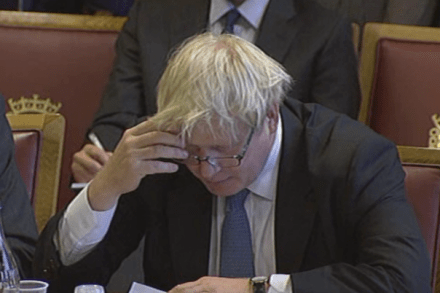Can you trust a government report on the alternatives to HS2?
As Britain’s train lines suffer in the wake of St Jude, the political storm over high speed rail continues to rage. The government and Labour are playing footsie with each other. Labour’s somewhat left-field idea to re-open the Grand Central Railway — at an estimated cost of £6 billion, compared to £43 billion for HS2 — has been matched by a fear-mongering government statements about the implications of not building a high speed rail line. The coalition’s ‘updated business case’ claims that, if Britain did not pursue the high-speed solution, a ‘patch-and-mend job’ would be necessary, which would be almost as expensive and mean 14 years of weekend closures. It




















